Challenging tradition: Indian youth demand change from community leaders
Frustration
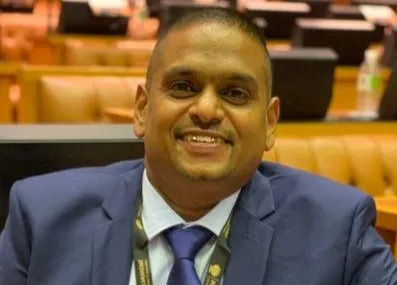
Brandon Pillay
Image: Supplied
AN OPEN letter has criticised community elders for failing to mentor and empower the next generation, sparking a debate about leadership and succession for Indian youth in the country.
In the letter, which has been shared widely on social media platforms and has since been published in the POST, the authors, whose names are not known, expressed their “disappointment” in leaders who apparently hold onto positions and are unwilling to help the youth reach their full potential.
Youth reaction
Brandon Pillay, a former member of parliament, said the letter resonated with him.
“It certainly opened many old wounds. I know first-hand what this means. I started my activism at the age of 17; what I expected and the results I got were worlds apart. Instead of grooming, shaping and mentoring, I got the total opposite. I was seen as a rebel, but here I was a young person amongst adults and elders and I learnt nothing from them. In fact what I learnt was never to be like them, never to pull down other people, never to see people differently.”
However, Pillay added there had been a few elders or adults that had helped shape him.
“Sadly, that type of leadership doesn’t exist any longer. The late Professor Fatima Meer who arrived in Bayview believed in me. Professor Ashwin Desai taught me that you don’t need to be liked just get the work done and Ramesh Harcharan instilled in me to give my best and do my best.
“From Mr Vivian Reddy, I learnt that if 'you can dream it, you can achieve it’. These were the only guiding forces that had a positive influence in the early days. Later on, I met Dhilosen Pillay and he was the only motivating factor.”
Pillay, who is the chairperson and director of the Bayview Ubuntu Community Centre said it was important for the “elders” to accept that they will not be around forever.
“You cannot say that young people are our future generation when you are not prepared to invest in that future, not prepared to pass on the baton and not prepared to empower and develop them.
“They must also accept that they have their own legacy, past and era, which has long past its sell-by date. Young people cannot erase their legacy and history, so they must stop being selfish and allow us to leave our own legacy, allow us to build our own present and allow young people the space to shine,” he said.
- Arlene Govender, founder of the group, Youth with a Voice, said she did not believe that the majority of “elders” who held positions across government, civic organisations, and community structures had made space for youth leadership.
“There are the rare exceptions, but the overwhelming culture has been one of gatekeeping, control, and fear of being replaced. Too many elders treat leadership as a lifetime entitlement, rather than a temporary responsibility to nurture new leaders and renew institutions.
“The result is a system where young people are either used as tokens or pushed to the margins until they either leave in frustration or are forced to replicate the same exclusionary behaviour to survive. This dynamic is not just disappointing, it is deeply dangerous,” she said.
Govender said she believed the long term impact would be the weakening of the country’s future.
“Leadership that refuses to regenerate becomes stagnant, unaccountable, and unable to respond to the changing realities of society. We end up with institutions that speak of youth but are completely out of touch with their lived experiences. This will inevitably deepen inequality, erode public trust, and leave a vacuum easily filled by populism or extremism.”
Govender said she believed the "elders" should be actively and deliberately building succession not in name, but in action.
“That means mentoring young people, stepping aside when necessary, and supporting youth-led initiatives without trying to control them. It also means resourcing young leaders, protecting them from political abuse, and ensuring they inherit not just responsibility, but also power and platforms.
“If the elders genuinely care about the legacy of the movements, organisations, and communities they serve, they need to stop trying to outlive their time and start preparing others to shape the future,” she said.
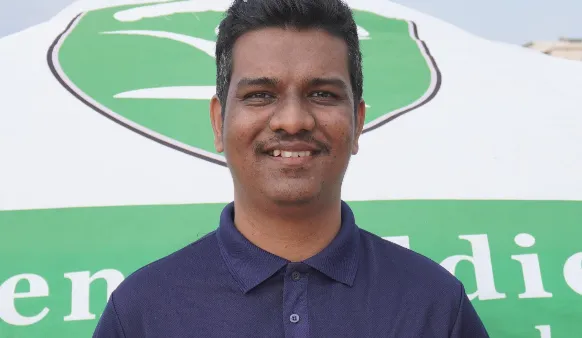
Ashlin Ellan.
Image: Supplied
- Ashlin Ellan, a youth leader, said the letter was not merely emotional, but a reflection of truth, pain, and frustration.
“It holds up a mirror to entrenched systems and cultural gatekeeping that many of us have experienced in our personal and organisational journeys.”
Ellan said while there are exceptions, the dominant culture within many Indian organisations, religious structures, and community bodies has been one of preservation of power rather than succession planning.
“Elders often speak of legacy, but in practice, they cling to titles and decision-making roles well beyond their time. This has created a bottleneck of opportunity, where emerging youth leaders either conform to the status quo or are alienated entirely.”
Ellan said the impact was far-reaching.
“We are witnessing a growing disconnect between generations. Talented, passionate young individuals are choosing to lead in isolation or outside of traditional structures because these spaces are no longer safe or inspiring. As a result, community institutions are stagnating. They struggle to attract new voices, fresh ideas, or energy. If this pattern continues, the legacy our elders speak of preserving will vanish, not because young people don’t care, but because they were never included in shaping it.”
Ellan said “elders” should see succession not as a threat to their identity but as the ultimate fulfilment of it.
“To lift others as you climb is the highest form of legacy. When the youth rise, elders don’t disappear; they become immortalised through the values they passed on, not the titles they held. To the youth who penned this letter, I hear you, I stand with you and I believe we are not merely inheriting the future – we are shaping it now.”
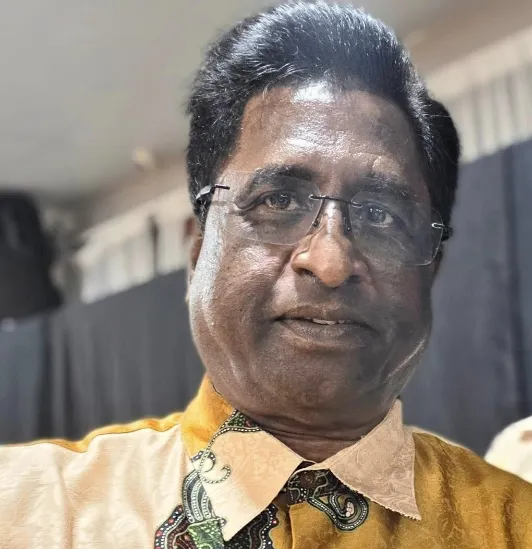
Logie Naidoo
Image: Facebook
Political activists and leaders
Logie Naidoo, a former deputy mayor and Speaker in the eThekwini Municipality, said while the letter was anonymous, it represented the youth’s sincerity to participate in the affairs of the country.
However, he said that together with fellow comrades and colleagues they has vigorously supported the development of youth in society.
“We have recognised that youth formations are the kindergarten of future leaders in South Africa.”
Naidoo added that it was not true that “Indian elders” had blocked or suppressed Indian youth in taking up positions in a variety of organisations such as political, civic, cultural or sporting, among others.
“In fact many of us encourage participants from our youth sector as was the case in setting up the NIC (Natal Indian Congress) Legacy Committee.”
Naidoo said it was also important that the youth assert themselves and become involved in political party structures, civic and civil society organisations and all forms of community work.
“Claim your space and get involved. Don't expect it to fall like ‘manna from heaven’. In these times, it is easier to be part of civic or political work than in our pre-democracy times when freedom of movement, speech and association were restricted.
“The youth should also keep in mind there is no easy partway to positions of power in any organisation. You must get involved with the work of the organisation and climb the ranks to the top.
“Many of us in the progressive movements are prepared to meet the youth and provide them with the opportunities, as well as train, guide and develop them into our future leaders. None of us are going to be around forever. I am looking forward to future engagement with the youth.”
Naidoo added the National Dialogue presented an opportunity for youth to participate in shaping the country's destiny over the next 30 years of democracy.
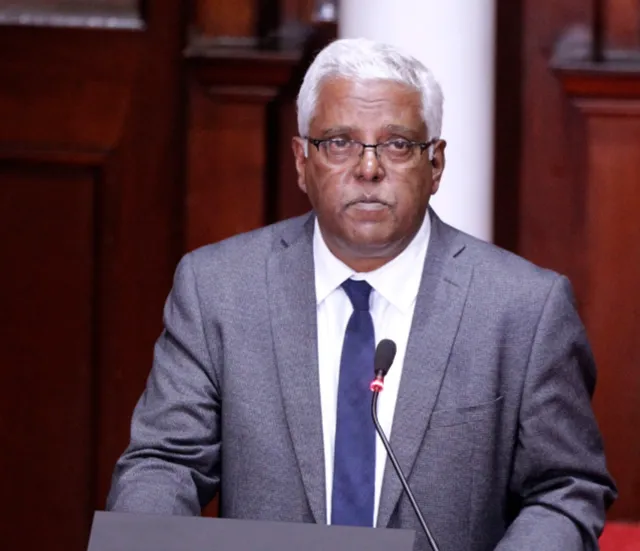
Ravi Pillay.
Image: File image
- Ravi Pillay, the former KZN MEC of Finance, said while he did not agree with some of the ‘motivating sentiments’ expressed in the letter, the central thrust was accepted that more must be done to promote and empower youth leadership.
“In 2019 I wrote an anniversary message titled, ‘Time for a new generation of leadership’. During the course of the NIC 130 Anniversary programme last year, discussion focused on a wide range of issues. One of the resolutions was that there should be specific focus on four areas which was social cohesion and nation building; research on a range of socio-economic issues; government capacity and capability and platforms for youth leadership and training. These are a work in progress.
“However, we do observe that many young people are very active in religious, cultural and civil society formations. The talent and energy is clearly there. However, we have to confront the fact that the political space appears too toxic for many. There is also the fact that most decisions are subject to democratic decision making processes.
“Ultimately, we must contribute to young people claiming and earning their space. In addition, most 'elders' I know would really want to be relieved of the pressure of public service,” he said.
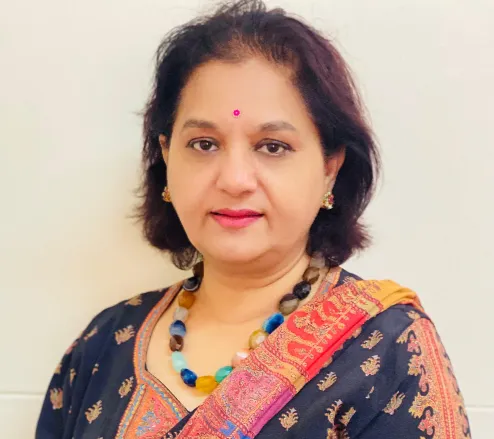
Shameen Thakur-Rajbansi.
Image: Supplied
- Shameen Thakur-Rajbansi, leader of the Minority Front, said a few “elders”, such as the late Amichand Rajbansi, were selfless and understood that succession was vital to keep an organisation continuing.
“Mr Rajbansi trained many young people, and today, they thriving politically. However, many organisational heads do not empower youth until the organisation has collapsed and needs resuscitation. This is prevalent in government, business and society.This is also due to bad governance from the top, with the approach taken that ‘children can be seen, not heard’.
“It is also the case of gatekeeping for selected persons to be trained to take over at some point or bureaucrats who hold on to positions past 65 years; a period when clearly performance starts to dwindle. This attitude of entitlement for a few must stop as our youth have huge potential and require mentoring, a task too few seniors take up,” she said.
Thakur-Rajbansi added that she believed “elders” had to shift away from the traditional way of succession planning.
“They have to move away from how it was done in the past and use the lessons learnt to fix the current concern of our youth. They must be mentored and coached to take on leadership positions as soon as these talents are recognised so that they can build a solid reputation for themselves. This will increase their presence in the room and exaggerate their strengths with synergized efforts from all sides.
“This open letter is simply our youth asking for what they want, which people don’t frequently ask for. They have been heard and their needs must be met because they deserve our trust and support,” she said.
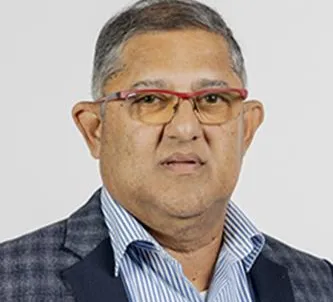
Narend Singh
Image: File image
- Narend Singh, the deputy minister of forestry, fisheries and the environment said: “This is a very general letter with no author. Perhaps the author or this group could identify themselves so that there could be a meaningful discussion or ‘round table’ with those ‘elders’ they make reference to. I am willing to assist in facilitating the proposed engagement. However, it is good to note ‘the fire in the belly’ of the youth.”
Related Topics: